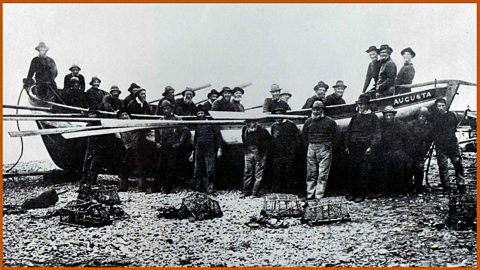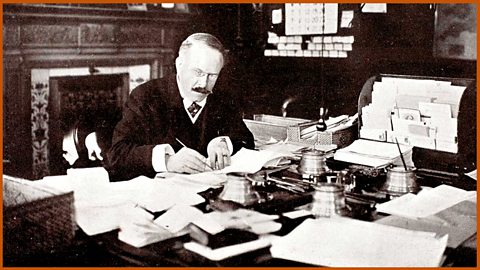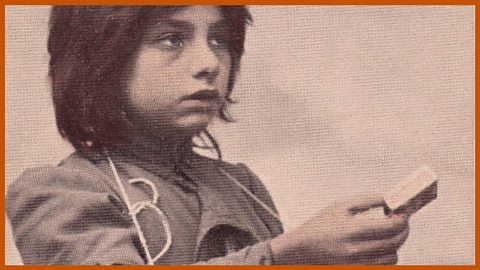By Rob John
It was April 1855. I was a soldier in the British Army in the Crimean War. I was long way from home and I was illreally ill.
ÔÇÿPrivate Browning,ÔÇÖ said my sergeant. ÔÇÿWeÔÇÖre going to have to send you to the hospital at Scutari.ÔÇÖ
My heart sank.
ÔÇÿNo. Please donÔÇÖt send me to Scutari, Sarge!ÔÇÖ I said. ÔÇÿIf I go back to that hospital IÔÇÖll die. IÔÇÖll feel better in a couple of daysÔǪhonest.ÔÇÖ
My sergeant wasnÔÇÖt listening.
Next thing I was bundled onto a cart and heading for Scutari.
I was terrified 'cos I knew what that hospital in Scutari was like. The year before Id been injured see. A Russian bullet had nicked my right hand. Nice clean wound. Didnt even hurt much.No real damage but they sent me down to Scutari to get it looked at. I thought Id been luckybut then I got into the hospital.
A hospitals supposed to save lives but this onewellit was horrible. Wounded soldiers were lying on filthy beds. Some didnt even have beds. They were just lying on the floor.
Men in paincalled out for help but there were hardly any doctors or nurses. Nobody seemed to be in charge. It was chaos. There were rats everywhereand the smell! The drains were blocked, see, and this horrible stink was coming up from underneath the building.
I was only in Scutari for three days but in that time I saw plenty of soldiers die. And most of them werenÔÇÖt dying of their wounds but of diseases. Cholera, dysentery, typhoid, gangrene. Horrible diseases that are just as deadly as a bullet.
So when I got ill and they sent me back to Scutari I thought, ÔÇÿWell thatÔÇÖs it. IÔÇÖm as good as dead. IÔÇÖll never get back home now.ÔÇÖ
But when I got to the hospital everything was different. The horrible smell had gone. The floors had been scrubbed. Soldiers lay in clean beds in neat rows. The windows were open andfresh air blew through the wards. And there were nurses - dozens of nurses in bright white aprons, moving from bed to bed, tending the sick and wounded. I couldnÔÇÖt believe it.
ÔÇÿWhat's happened?ÔÇÖ I said to the wounded soldier in the next bed.
ÔÇÿFlorence Nightingale,ÔÇÖ said the soldier. ÔÇÿThatÔÇÖs what happened.ÔÇÖ
ÔÇÿFlorence who?ÔÇÖ I said.
The soldier explained that the British government had become so worried about soldiers dying in the hospital that that theyÔÇÖd sent thirty-eight nurses from London to try to save lives. Andthe nurses were led by Florence Nightingale.
ÔÇÿNurse Nightingale runs this place now,ÔÇÖ said the soldier. ÔÇÿSheÔÇÖs in charge. Everything has to be the way she wants it. Clean floors, clean sheets, clean uniforms. She even paid some workmen to sort out the drains. This place used to really stink.ÔÇÖ
ÔÇÿItÔÇÖs a miracle,' I said.
Everyone at the hospital was talking about Florence Nightingale. They said she could be a bit fierce. They said the doctors were scared of her. Some said that even the generals in chargeof the army were scared of her.
ÔÇÿIf she says somethingÔÇÖs going to happen then it happens,ÔÇÖ said the man in the next bed. ÔÇÿNobody argues with Florence Nightingale.ÔÇÖ
ÔÇÿWhich one is she?ÔÇÖ I asked.
ÔÇÿYouÔÇÖll see her soon enough,ÔÇÖ he said.
I was still very ill. I must have drifted off to sleep because when I woke up it was night. The ward was dark. I remember feeling thirsty and wishing I had a glass of water. And then at theend of the ward I saw a light moving slowly towards me.
It was a nurse carrying a lamp. She stopped at every bed and looked closely at each sleeping soldier. And then she came to me. She held up her lamp and smiled. Somehow she knew my name.
ÔÇÿPrivate Browning,ÔÇÖ she said. ÔÇÿYou are very ill but you will get better. I promise.ÔÇÖ
Then she handed me a glass of water. I drank and fell asleep.
In the morning I told the soldier in the next bed that in the night Id dreamt a woman with a lamp had comethat shed given me a glass of water and told me that Id get better.
ÔÇÿThat was no dream,ÔÇÖ said my new friend. ÔÇÿThat was Florence Nightingale and if she says youÔÇÖre going to get better then you will.ÔÇÖ
I saw her many times after that. Every night sheÔÇÖd walk through the hospital shining her lamp on the sleeping soldiers. If she saw that you were awake sheÔÇÖd stop and talk. Somehow sheÔÇÖd give you hope; give you hope that youÔÇÖd get well again.
And hundredsthousands of men did get well again. See the hospital was clean now. Florence Nightingale and her nurses had got control of the germs that had killed so many and now we all stood a chance of making a recovery.
So I didnÔÇÖt die in Scutari. My illness passed and a year later in 1856 I came home again.
All that happened a long time ago but IÔÇÖve never forgotten Florence Nightingale. Never forgotten how she came in the night, shone her lamp and promised me that things would be better.
By Rob John
It was April 1855. I was a soldier in the British Army in the Crimean War. I was long way from home and I was illreally ill.
ÔÇÿPrivate Browning,ÔÇÖ said my sergeant. ÔÇÿWeÔÇÖre going to have to send you to the hospital at Scutari.ÔÇÖ
My heart sank.
ÔÇÿNo. Please donÔÇÖt send me to Scutari, Sarge!ÔÇÖ I said. ÔÇÿIf I go back to that hospital IÔÇÖll die. IÔÇÖll feel better in a couple of daysÔǪhonest.ÔÇÖ
My sergeant wasnÔÇÖt listening.
Next thing I was bundled onto a cart and heading for Scutari.
I was terrified 'cos I knew what that hospital in Scutari was like. The year before Id been injured see. A Russian bullet had nicked my right hand. Nice clean wound. Didnt even hurt much.No real damage but they sent me down to Scutari to get it looked at. I thought Id been luckybut then I got into the hospital.
A hospitals supposed to save lives but this onewellit was horrible. Wounded soldiers were lying on filthy beds. Some didnt even have beds. They were just lying on the floor.
Men in paincalled out for help but there were hardly any doctors or nurses. Nobody seemed to be in charge. It was chaos. There were rats everywhereand the smell! The drains were blocked, see, and this horrible stink was coming up from underneath the building.
I was only in Scutari for three days but in that time I saw plenty of soldiers die. And most of them werenÔÇÖt dying of their wounds but of diseases. Cholera, dysentery, typhoid, gangrene. Horrible diseases that are just as deadly as a bullet.
So when I got ill and they sent me back to Scutari I thought, ÔÇÿWell thatÔÇÖs it. IÔÇÖm as good as dead. IÔÇÖll never get back home now.ÔÇÖ
But when I got to the hospital everything was different. The horrible smell had gone. The floors had been scrubbed. Soldiers lay in clean beds in neat rows. The windows were open andfresh air blew through the wards. And there were nurses - dozens of nurses in bright white aprons, moving from bed to bed, tending the sick and wounded. I couldnÔÇÖt believe it.
ÔÇÿWhat's happened?ÔÇÖ I said to the wounded soldier in the next bed.
ÔÇÿFlorence Nightingale,ÔÇÖ said the soldier. ÔÇÿThatÔÇÖs what happened.ÔÇÖ
ÔÇÿFlorence who?ÔÇÖ I said.
The soldier explained that the British government had become so worried about soldiers dying in the hospital that that theyÔÇÖd sent thirty-eight nurses from London to try to save lives. Andthe nurses were led by Florence Nightingale.
ÔÇÿNurse Nightingale runs this place now,ÔÇÖ said the soldier. ÔÇÿSheÔÇÖs in charge. Everything has to be the way she wants it. Clean floors, clean sheets, clean uniforms. She even paid some workmen to sort out the drains. This place used to really stink.ÔÇÖ
ÔÇÿItÔÇÖs a miracle,' I said.
Everyone at the hospital was talking about Florence Nightingale. They said she could be a bit fierce. They said the doctors were scared of her. Some said that even the generals in chargeof the army were scared of her.
ÔÇÿIf she says somethingÔÇÖs going to happen then it happens,ÔÇÖ said the man in the next bed. ÔÇÿNobody argues with Florence Nightingale.ÔÇÖ
ÔÇÿWhich one is she?ÔÇÖ I asked.
ÔÇÿYouÔÇÖll see her soon enough,ÔÇÖ he said.
I was still very ill. I must have drifted off to sleep because when I woke up it was night. The ward was dark. I remember feeling thirsty and wishing I had a glass of water. And then at theend of the ward I saw a light moving slowly towards me.
It was a nurse carrying a lamp. She stopped at every bed and looked closely at each sleeping soldier. And then she came to me. She held up her lamp and smiled. Somehow she knew my name.
ÔÇÿPrivate Browning,ÔÇÖ she said. ÔÇÿYou are very ill but you will get better. I promise.ÔÇÖ
Then she handed me a glass of water. I drank and fell asleep.
In the morning I told the soldier in the next bed that in the night Id dreamt a woman with a lamp had comethat shed given me a glass of water and told me that Id get better.
ÔÇÿThat was no dream,ÔÇÖ said my new friend. ÔÇÿThat was Florence Nightingale and if she says youÔÇÖre going to get better then you will.ÔÇÖ
I saw her many times after that. Every night sheÔÇÖd walk through the hospital shining her lamp on the sleeping soldiers. If she saw that you were awake sheÔÇÖd stop and talk. Somehow sheÔÇÖd give you hope; give you hope that youÔÇÖd get well again.
And hundredsthousands of men did get well again. See the hospital was clean now. Florence Nightingale and her nurses had got control of the germs that had killed so many and now we all stood a chance of making a recovery.
So I didnÔÇÖt die in Scutari. My illness passed and a year later in 1856 I came home again.
All that happened a long time ago but IÔÇÖve never forgotten Florence Nightingale. Never forgotten how she came in the night, shone her lamp and promised me that things would be better.
Play next:
The Lynmouth overland launch. audio
KS2. The famous story from 1899 of a lifeboat 'launched' overland.

Carrots. audio
KS2. Thomas Barnardo describes the tragic life and death of a child nicknamed 'Carrots'.

The little match girl. audio
KS2. The match girl lights her matches to keep warm...until she has none left to light.
